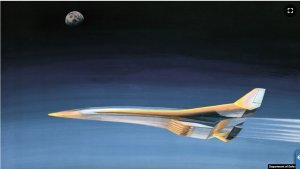这些日子里,奥运和中国的经济吸引了很多注意力,以致于人们容易忽略北京外交政策发生的深层次变化。在中国领导人抚慰性的言辞(他们通常试图轻描淡写国家实力)掩盖下,一场关于中国国际办法的激烈辩论正在进行。在政府智库及大学发动的这场辩论中,自由国际主义者对抗中国新保守派(其目的完全就是按照中国的形象重塑整个国际秩序)。
目前自由国际主义者处于上风。他们当中包括缔造“中国和平崛起”一词的前中央党校副校长郑必坚(Zheng Bijian)。他们主张中国应该尊重国际体系的传统规则,避免冲突,并说服他人中国并不是威胁。郑必坚认为中国需要利用华盛顿的不得人心,投射它自己的“软实力”。他希望北京通过推广基于经济发展的“中国梦”(来帮助穷人),来回应关于个人成功的“美国梦”,并尊重主权和国际法(来捍卫国家独立)。尽管这个术语已经被弃用,但中国的和平崛起如今定义了胡锦涛的外交政策,向全世界投递中国的友谊,向所有接受者提供援助,并通过软化北京在达尔福尔、伊朗和朝鲜等棘手国际问题上的立场来缓解与西方的紧张。
相反,新保守派(neocons)代表着毛泽东时期挑战西方霸权政策的新观念。当中包括和国家安全部关系密切的学者阎学通(Yan Xuetong),以及作为中国军方最具才华思想家之一的海军少将杨毅(Yang Yi)。新保守派认为中国应该不那么侧重于安抚华盛顿,而应该更加关心北京自己的重点事务。当中包括抵制海外的民主推销和人道干涉,以保护中国及其盟国不受外来干预。
新保守派采纳了多边主义。阎学通等学者把这个概念转变成实力投射的工具,在加强中国独立性的同时帮助它发展与其他亚洲国家的联系,其安排将排除中国的大对手美国。
自20世纪90年代中期以来,阎学通就不知疲倦地向传统上对国际机构持怀疑态度的中国外交部推销这一概念,认为区域一体化将给中国带来各种各样的实际利益。而且北京慢慢让步;例如它现在支持仿照欧盟的“东亚共同体”的概念。阎学通认为这样的共同体将是促进中国实力并排斥日本的有效手段,因为作为美国最强大亚洲盟友的日本可能不愿意参与这样的项目。在新的计划中,中国将扮演核心角色,犹如欧洲的法国或德国,而日本将是局外角色,犹如欧盟背景下的英国。
随着时间的推移,更有闯劲的新保守派可能成为主导。在近代史上,中国遵循的变革模式是先来小规模的,然后再扩展。例如,在国内,它首先在经济特区引入自由市场,数年后扩大到全国。预计在国际领域的情况也类似。北京已经开始迈出按照自己的形象建立新体系的婴儿小步,在东亚共同体和上海合作组织等区域组织的创立工作中充当先锋。这些组织以中国价值观和规范为基础,而不是以西方的为基础,代表了北京可能在未来加以扩大的楔入口。
中国自身摆脱西方的解放也缔造了一条偏狭的道路,以国家高度控制经济、社会和政治领域为特色。非洲、中东、中亚和拉美等地的其他发展中国家可能寻求遵循这条道路。中国越是富裕越是强大,“中国模式”的吸引力就越大,而且它对冷战后主导国际事务的自由民主范例就会构成更加真实的威胁。(作者 Mark Leonard)
The Rise of China’s Neocons
By Mark Leonard | NEWSWEEK
Mar 17, 2008 Issue
So much focus is given to the Olympics and China\’s economy these days that it\’s easy to overlook the deeper shifts occurring in Beijing\’s foreign policy. But concealed behind the anodyne comments of China\’s leaders, who generally try to underplay their country\’s power, a fierce debate over China\’s international approach is underway. The argument, waged in government-run think tanks and universities, pits liberal internationalists against China\’s neocons—who aim for nothing short of remaking the entire international order in China\’s image.
For now the liberal internationalists have the upper hand. They include thinkers like Zheng Bijian, a former deputy to President Hu Jintao at the Communist Party\’s Central School and the man who coined the term \”China\’s peaceful rise.\” They maintain that China should respect the traditional rules of the international system, avoid conflict and sell others on the idea that China is not a threat. Zheng has argued that China needs to exploit Washington\’s unpopularity by projecting its own \”soft power,\” or cultural and political appeal. He wants Beijing to answer the \”American Dream\” of individual success by promoting a \”Chinese Dream\” based on economic development (to help the poor) and respect for sovereignty and international law (to defend national independence). Although the term has been discarded, China\’s peaceful rise now defines the foreign policy of President Hu, who is crisscrossing the world offering Chinese friendship and aid to all takers, and easing tensions with the West by softening Beijing\’s stand on touchy international issues like Darfur, Iran and North Korea.
By contrast, the neocons—or \”neocomms,\” as they should be known, since they represent a new twist on the Mao-era policy of challenging Western hegemony—are men like Yan Xuetong, an academic with close links to the Ministry of State Security, and Rear Adm. Yang Yi, one of the brightest thinkers in the Chinese military. The neocomms argue that China should be less focused on appeasing Washington and more concerned with Beijing\’s own priorities. These include resisting democracy promotion and humanitarian intervention abroad, in order to protect China and its allies from external interference.
The neocomms have taken up the idea of multilateralism— associated in the West with the dilution of national sovereignty by member states agreeing to be bound by the rules of supranational institutions (like the European Union or the World Trade Organization). Thinkers like Yan have transformed the concept into a tool of power projection that would reinforce China\’s independence while helping it develop links with other Asian countries, in arrangements that would exclude China\’s great rival, the United States.
Since the mid-1990s, Yan has worked tirelessly to sell this concept to the Chinese Foreign Ministry—which has traditionally been suspicious of international institutions—arguing that regional integration will bring all kinds of practical benefits to China. And Beijing has slowly come around; for example, it now supports the idea of an \”East Asian Community\” that would be modeled on the European Union. Yan argues that such a community would be an effective means of promoting Chinese power and sidelining Japan, since Tokyo, as America\’s most powerful Asian ally, would likely be a reluctant partner in any such project. In this new scheme, China would play a central role like that of France or Germany in Europe, while Japan would be the outsider, like Britain in the EU context.
Over time, the more aggressive neocomms may come to dominate. In recent history, China has followed a pattern of making changes on a minor scale before expanding them outward. Domestically, for example, it first introduced the free market in special economic zones, waiting years before expanding them to the country at large. Expect something similar in the international sphere. Already Beijing has started taking baby steps toward building a new system in its image, spearheading the creation of regional groups such as the East Asian Community and the Shanghai Cooperation Organization. These groups, which are underpinned by Chinese values and norms rather than Western ones, represent the thin edge of a wedge that Beijing is likely to expand in the future.
China\’s own emancipation from the West is also creating an illiberal path, characterized by high levels of state control in the economic, social and political spheres. Other developing countries—in Africa, the Middle East, Central Asia and Latin America—may seek to follow that road. The richer and more powerful China grows, the more attractive the \”Chinese model\” is likely to become—and the more real the threat it will pose to the liberal democratic example that\’s dominated international affairs since the end of the cold war.













